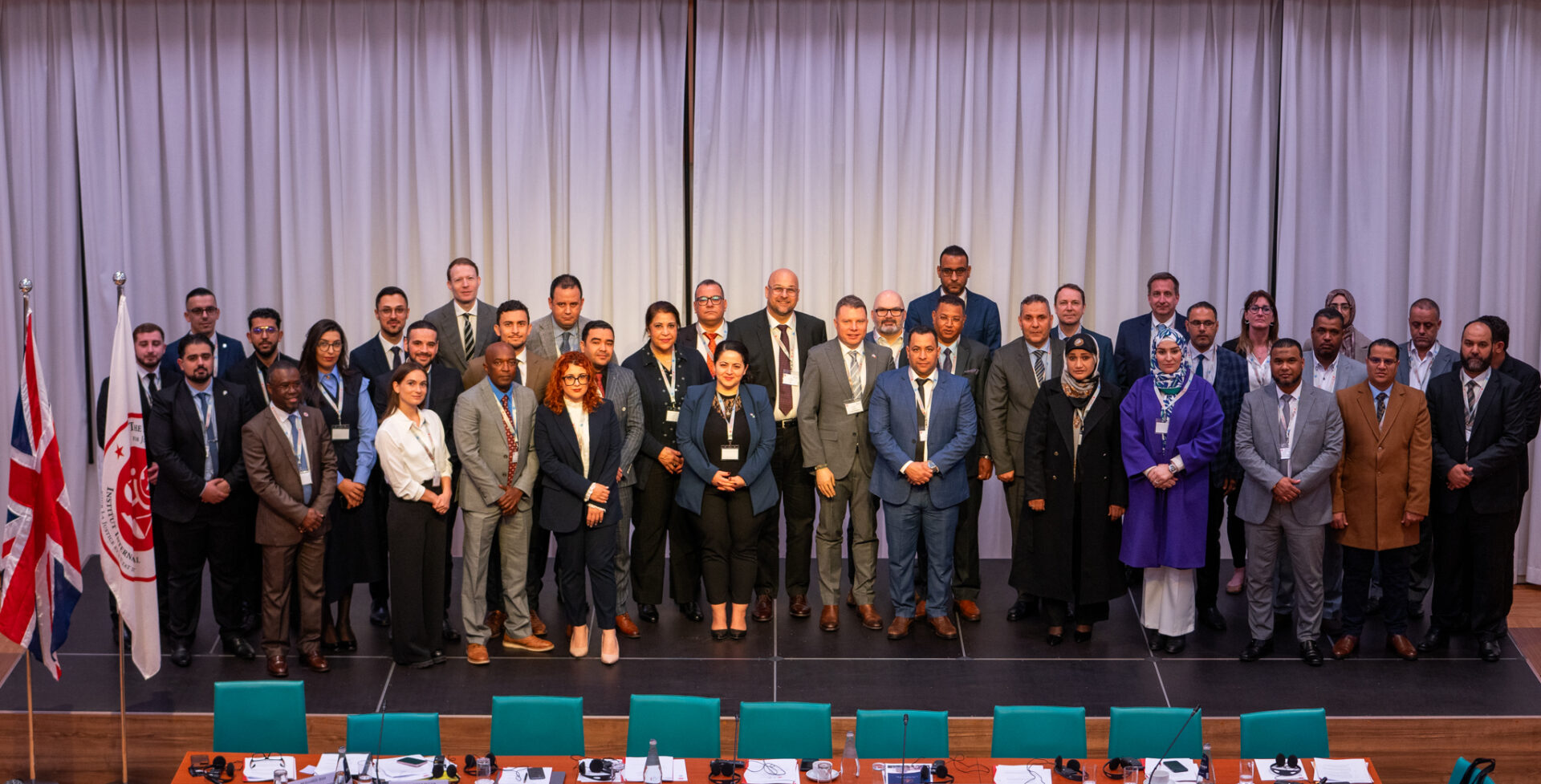
On 27 and 28 January 2025, the IIJ implemented a training on digital evidence in a counter-terrorism context for the Attorney General’s Office of Libya. The initiative was generously supported by the Foreign, Commonwealth and Development Office (FCDO) of the United Kingdom.
The programme brought together criminal justice practitioners from Libya, Algeria, Morocco, Tunisia, Malta, the United Kingdom and the United States, to discuss and share experiences and expertise in relation to terrorist misuse of traditional and emerging technologies, and how best to harness digital evidence to counter terrorism offences carried out in digital environments.
Mr. Reinhard Uhrig, IIJ Director of Outreach and Administration, Mr. Tristan Gilchrist, Deputy Chief of Mission of the British High Commission in Malta and Mr. Hassan Alahadari, Head of the Clerical and Administrative Work Inspection Unit of the Libyan AGO opened the training. All speakers emphasised the imperative for criminal justice responses to remain agile and to adapt to the shifting nature of terrorism, including terrorist misuse of technology.
Following an overview of terrorist misuse of online platforms, drones, cryptocurrencies and the metaverse, delivered by Dr. Erin Saltman, Senior Director of the Global Internet Forum to Counter-terrorism (GIFCT), Mr. Broderick McDonald, Associate Fellow of the International Centre for the Study of Radicalisation (ICSR) / Oxford Extremism and Disinformation Lab, and Mr. Mat Stanely, Detective Sargeant of the Metropolitan Police, discussions shifted to the legal and procedural frameworks for digital evidence in each participating country.
These discussions paved the way to more technical training sessions, including on collecting, authenticating, preserving and presenting digital evidence as part of counter-terrorism investigations and prosecutions, and how to exploit such evidence most effectively to build strong cases in line with the rule of law. Thematic sessions also focused on international and domestic cooperation, including cross-border judicial assistance for digital evidence, as well as critical human rights, privacy and gender considerations when handling such evidence.
With technology here to stay as a key component in the planning, facilitation, commission and execution of terrorist offences, this training formed part of the IIJ’s standalone portfolio on technology and terrorism, designed to assist partner countries and organisations to deepen our common understanding of this reality and to share insights on how to best counter this threat through rule of law compliant approaches.
